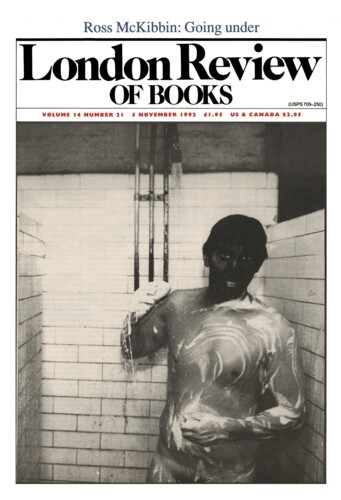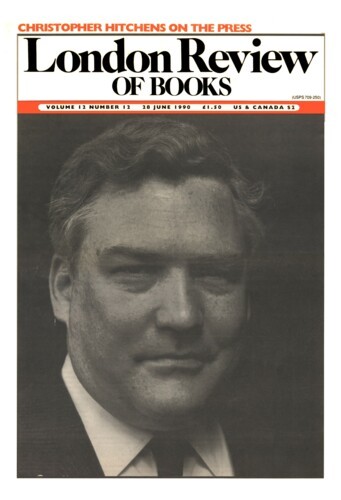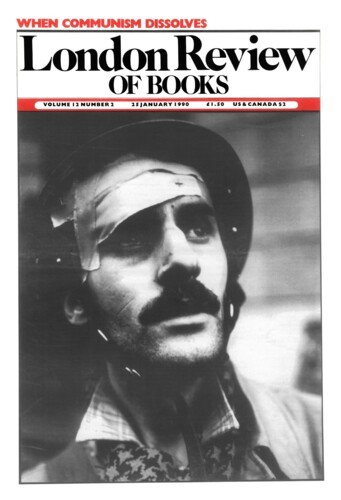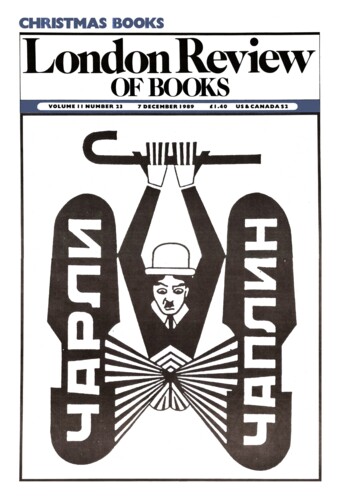John Ryle
John Ryle a journalist and anthropologist, is the author of Warriors of the White Nile.
Zero Grazing
John Ryle, 5 November 1992
Seventy-four years ago a viral pandemic began in America, most likely on a pig farm in Iowa. Fifteen months later it had killed over eighteen million people, 1 per cent of the world’s population, as many as died in two world wars, almost ten times as many as have died in a decade of Aids. The virus, transmitted by airborne mucus and saliva, spread via coughs and sneezes. In San Francisco and other American cities public health officials warned against all body contact, including shaking hands; ordinances were issued forbidding citizens from appearing in public places without face masks. Possibly because of such measures there were only a few thousand deaths in San Francisco during the first year of the pandemic, but elsewhere, including Europe, the toll was much higher. In Alaska and Central Africa and Oceania entire communities were wiped out. In India, it is estimated, the virus claimed twelve million victims – 4 per cent of the population.
Kiss and tell
John Ryle, 28 June 1990
The fascination of other people’s letters and diaries lies in the fact that what seems most private in us is what we have most in common. This is also one of the discoveries of love: love letters, therefore, are over-determined in their revelatory banality. The intimacies of others may be embarrassing, but they can never be entirely uninteresting. They put us in mind of our own secret memories; we measure our experience against theirs. And if the sentiments ring true, we steal the words.
When Communism dissolves
25 January 1990
Most aggressive
7 December 1989
Read anywhere with the London Review of Books app, available now from the App Store for Apple devices, Google Play for Android devices and Amazon for your Kindle Fire.
Sign up to our newsletter
For highlights from the latest issue, our archive and the blog, as well as news, events and exclusive promotions.





